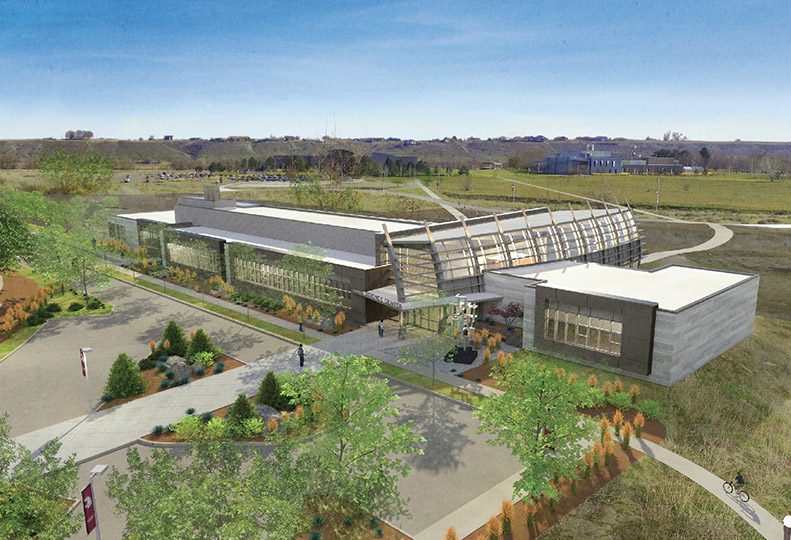
Home » Spokane team to design, construct Wine Science Center
Spokane team to design, construct Wine Science Center
Work on $23 million WSU Tri-Cities facility likely to begin this fall

May 9, 2013
Lydig Construction Inc. and ALSC Architects PS, both of Spokane, have been selected by the Wine Science Center Development Authority to construct a $23 million research and teaching facility at Washington State University Tri-Cities in Richland.
Additionally, the Spokane office of Hill International Inc., a New Jersey-based construction management company, is serving as project manager, and another company here, Spokane Industries Inc., will provide fermentation tanks for the facility.
The design-build team of ALSC-Lydig had the overall highest score in all categories during the procurement process, said Rob McKinney, authority chairman, in a press release announcing the selection.
"Lydig and ALSC conceptualized the Wine Science Center as an iconic structure that will attract world-class researchers and future students to the wine industry in Washington state, plus provide a great visitor experience within the facility," McKinney said. He added, "The Lydig and ALSC team has a proven and excellent reputation of successfully delivering design-build projects, and we look forward to working with them on this exciting project."
In a design-build project, a team that typically includes an architectural firm and a construction company work together to design and build a project, as opposed to the conventional method in which a project owner hires an architect to design the project and a contractor separately to build it.
Work on the Wine Science Center is to begin immediately to convert the conceptual look into design documents. Construction is expected to begin this fall, and the building is expected to be completed in late 2014.
The center will have about 39,300 square feet of floor space and is being designed to what are called silver environmental standards under nationally accepted Leadership in Energy and Environmental Design (LEED) criteria. The conceptual design includes a research and teaching winery, research laboratories, classrooms, conference rooms, and a regional and international wine library.
A dramatic central lobby will provide views of the research winery floor and outdoors toward the Columbia River and the WSU Tri-Cities campus, the news release said. The glass lobby will open to exterior landscaped plazas on each side of the building, it said.
The complex elements of the design will set the standard for future facilities at WSU Tri-Cities, the release said.
As a landmark at the corner of George Washington Way and University Drive in Richland, the building will be the gateway to the Tri-Cities Research District, it said.
The research and teaching conducted in the center will focus on the challenges and opportunities faced by grape growers and winemakers in the Pacific Northwest. Washington's grape and wine industry aims to triple its annual economic impact from $8.6 billion to $25.8 billion by 2020, the release said.
Fundraising for the center is in the final stages, project representatives have said. More than $18 million has been pledged toward the project during the past two years.
That includes contributions of $7.4 million from the Washington State Wine Commission through industry assessments, a $5 million legislative grant, a $2 million U.S. Economic Development Administration grant for equipment, and numerous corporate and private commitments.
Contributions also have included in-kind donations of equipment and professional services.
The project has come about through the efforts of a partnership. The city of Richland created and is managing the Wine Science Center Development Authority, the Port of Benton is donating some of the land, and WSU is leading the fundraising for the project.
The development authority's sole purpose is to oversee the design, construction, and financing of the project, after which it will turn the facility over to WSU and dissolve.
WSU says it has been involved in wine-related research since the 1930s, and it claims to be the only university in the Northwest offering bachelor's and graduate degrees in viticulture and enology, plus a wine business management program and a distance-education program to earn a professional certificate.
Thomas Henick-Kling, who joined WSU in 2009, is director of its viticulture and enology program, which has more than 30 faculty members at the school's campuses in the Tri-Cities, Prosser, and Pullman.
Latest News
Related Articles



